1-Day Local Culinary and Relaxation Journey in Pompeii for Couples
Pompeii, Italy
1 days
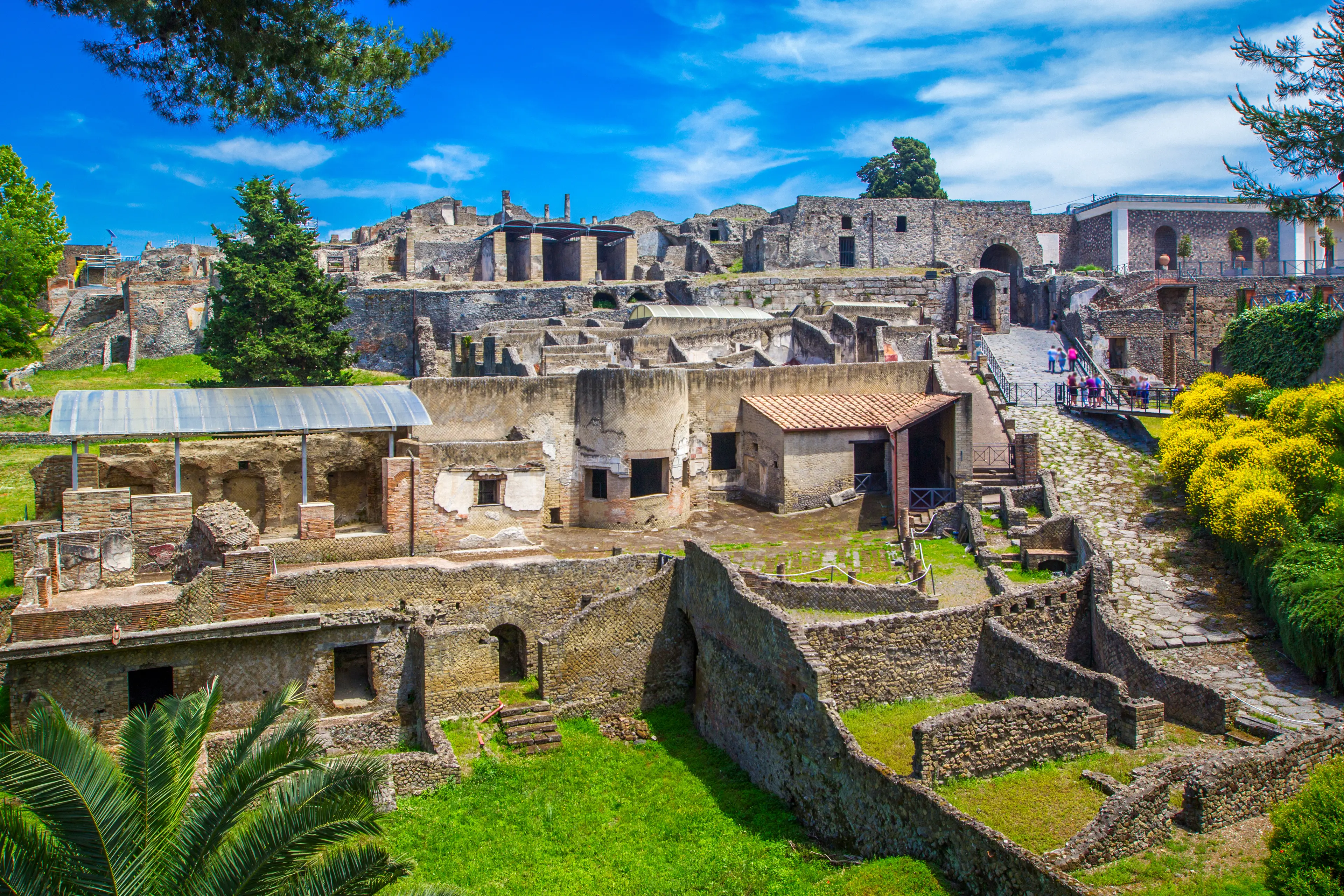
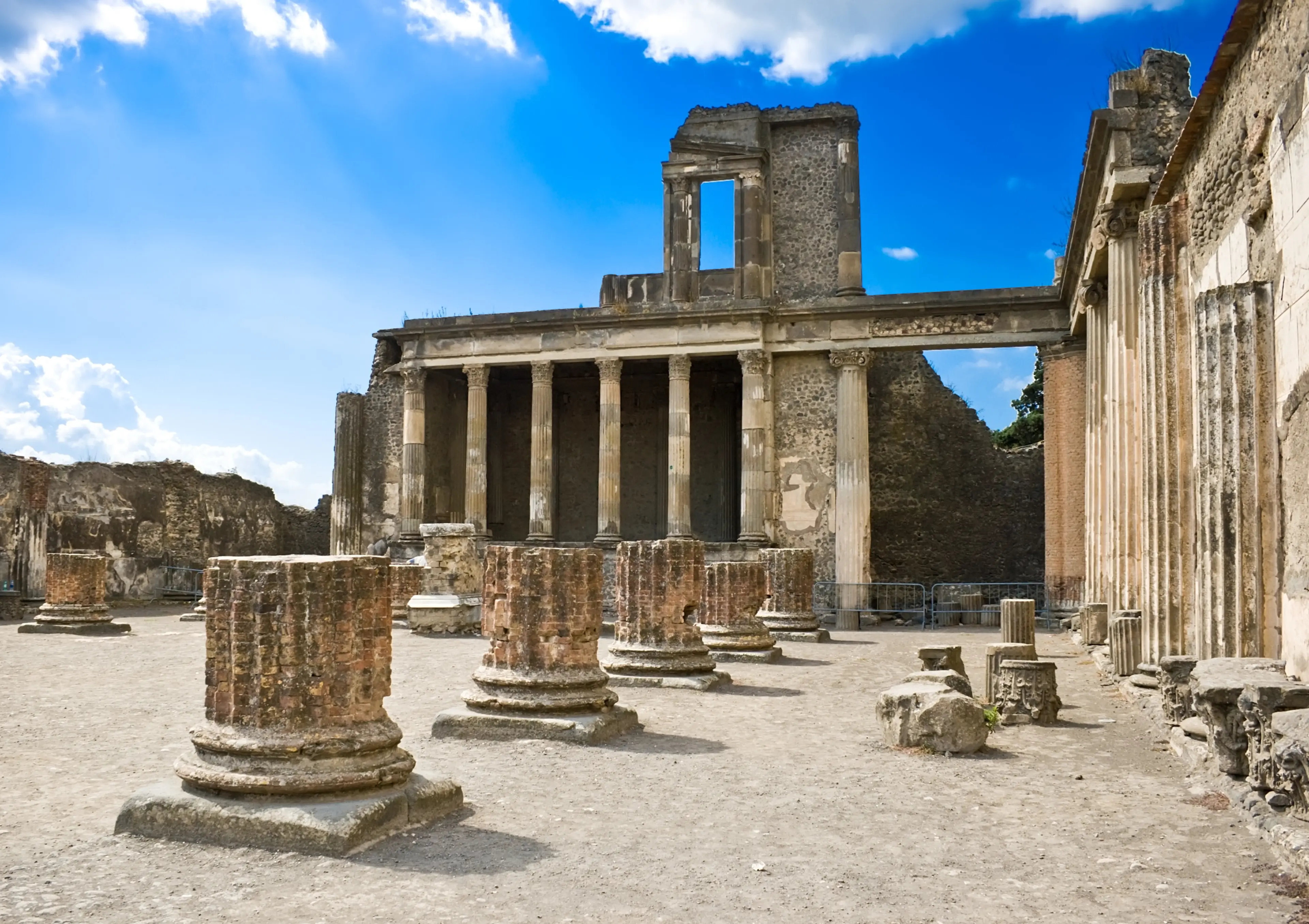
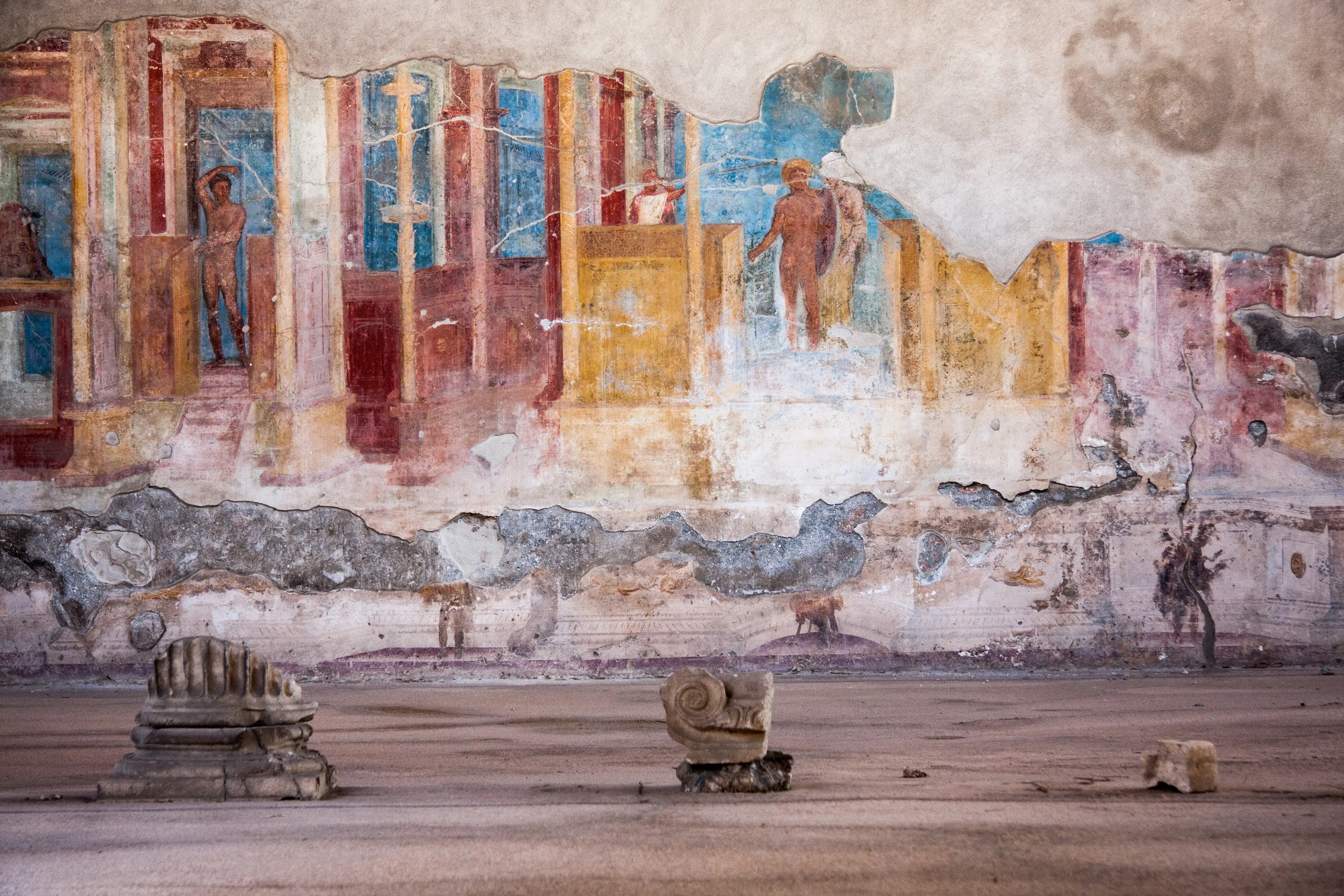
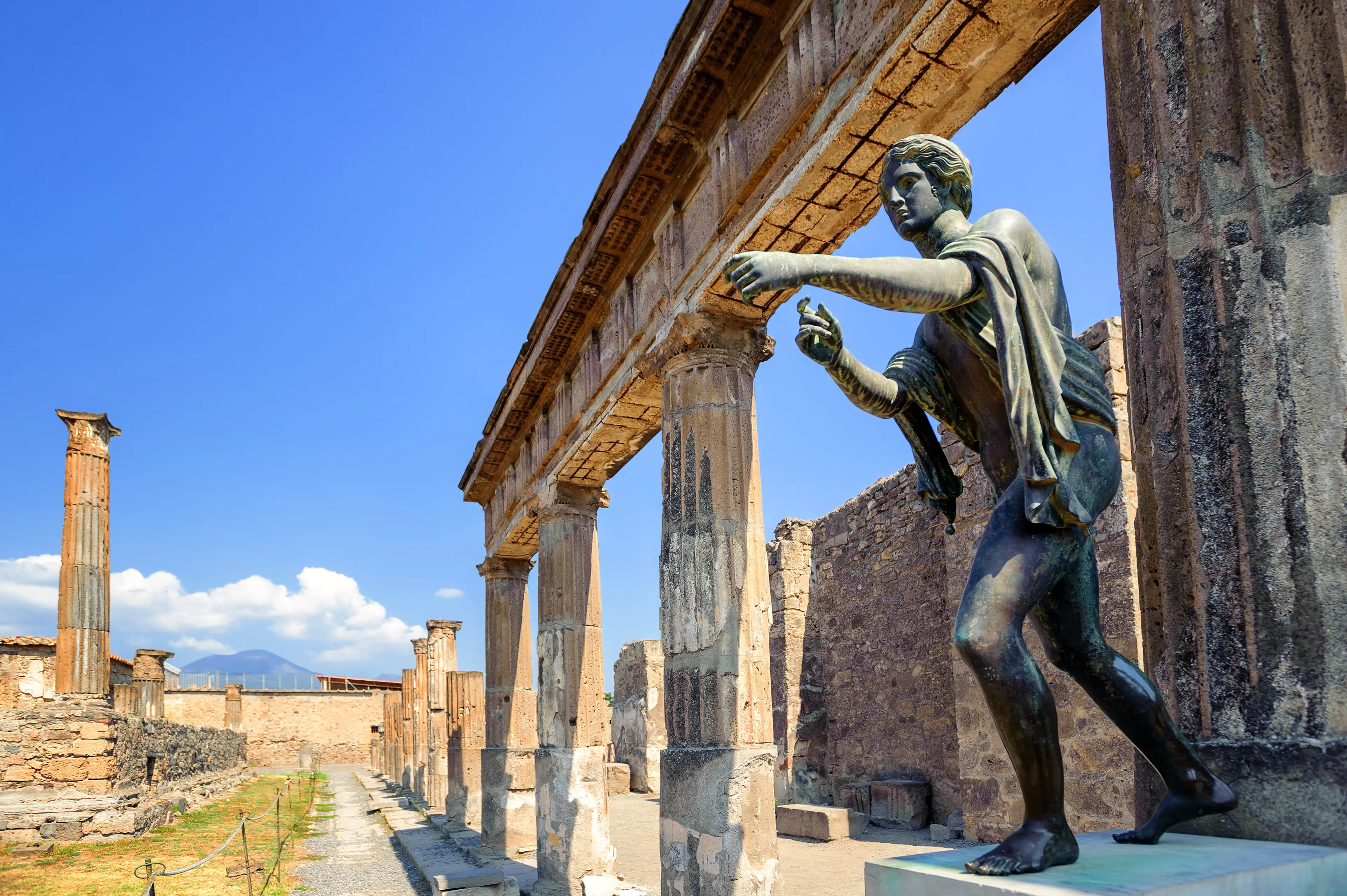
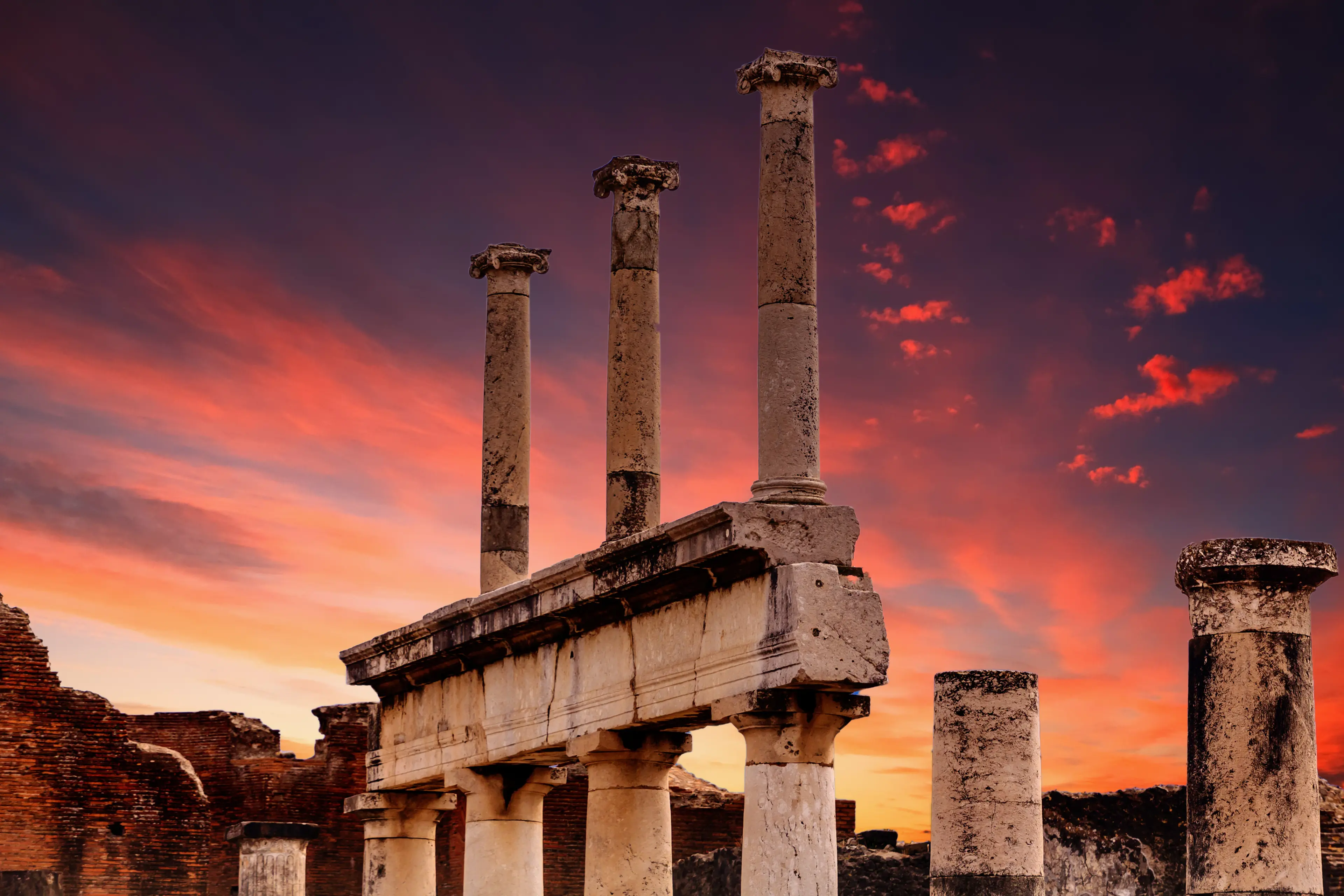
About Pompeii, Italy
Discover the ancient city of Pompeii, Italy, a UNESCO World Heritage site frozen in time by the eruption of Mount Vesuvius in 79 AD. Explore the remarkably preserved ruins, including the Forum, the Thermal Baths, and the House of the Vettii, adorned with stunning frescoes. Walk the stone streets once roamed by Romans and see the amphitheater that hosted gladiatorial battles. Don't miss the poignant plaster casts of the volcano's victims, a stark reminder of nature's power. Nearby, hike the trails of Vesuvius for breathtaking views of the Bay of Naples. Immerse yourself in history, culture, and natural beauty in Pompeii.
1-Day Itinerary
Attractions in Itinerary (5)

1Local Trattoria
A type of casual Italian eatery serving traditional dishes in a cozy, often family-run, setting.
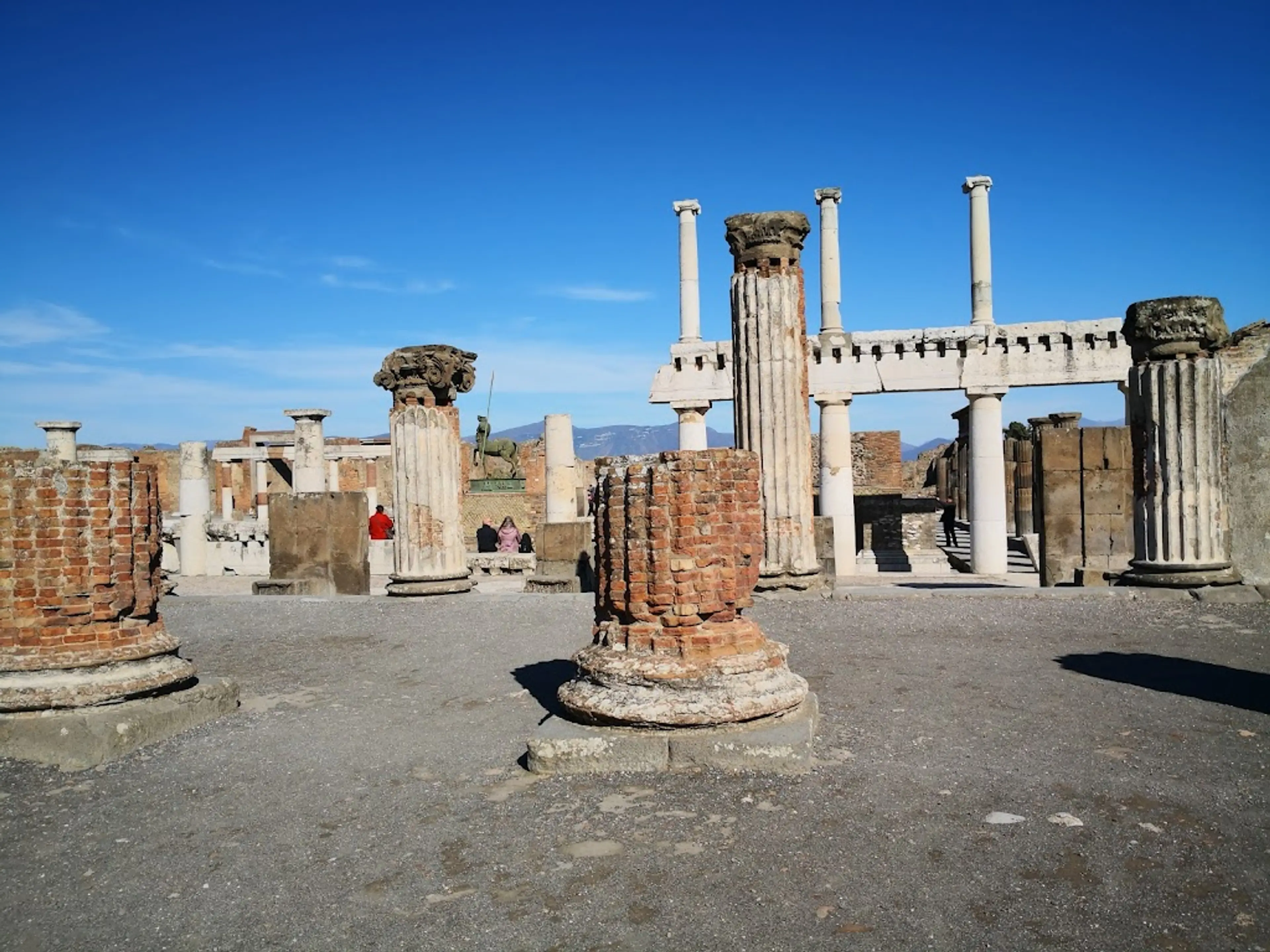
2The Forum
The Forum is the main square of the ancient city of Pompeii and was the center of political, economic and religious life.
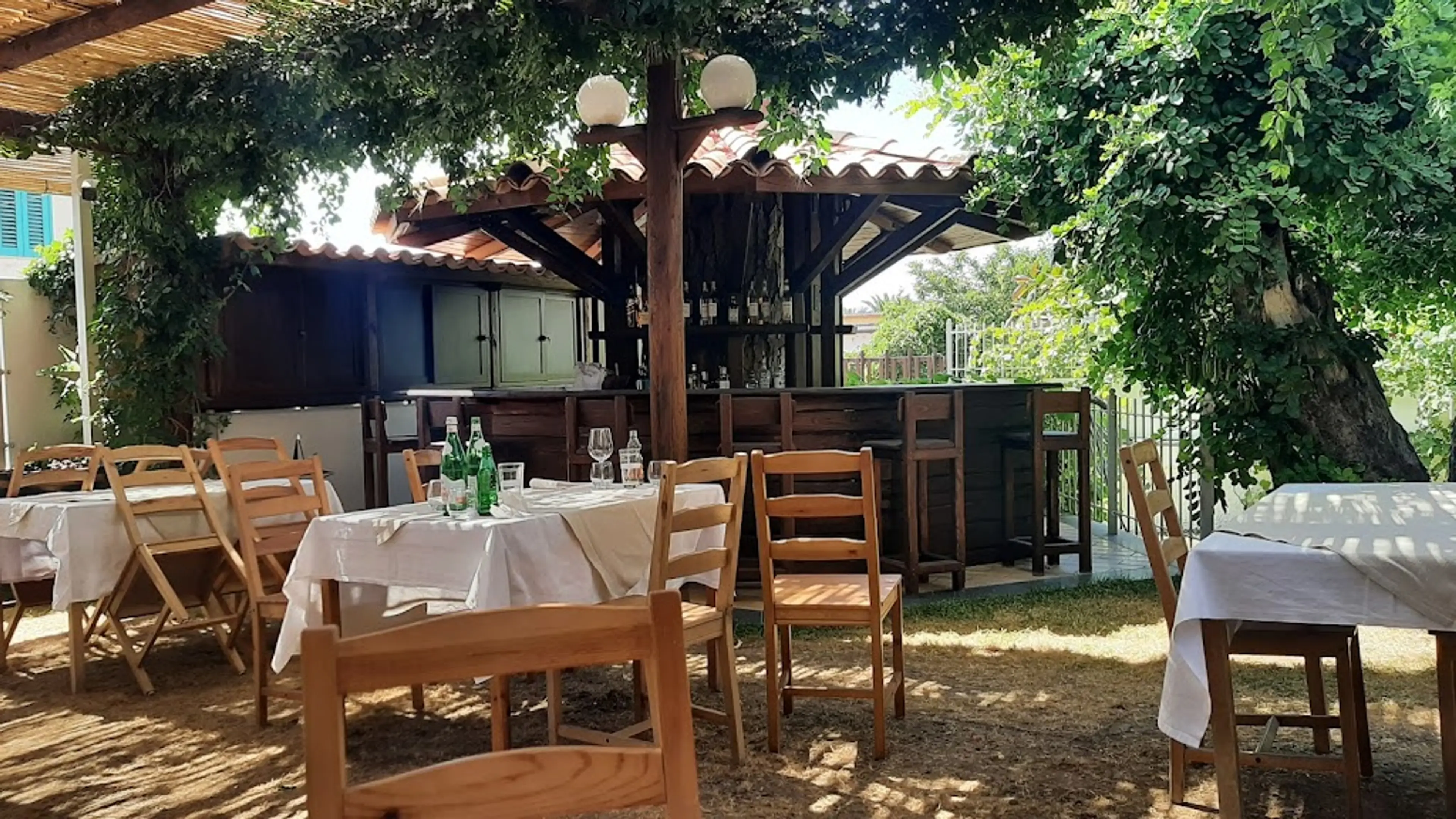
3Local Osteria
A place serving wine and simple food, often where locals gather for a casual meal or drink.

4Pompeii Archaeological Park
The vast archaeological site where the ancient city of Pompeii is located, offering a wealth of preserved Roman architecture and artifacts.
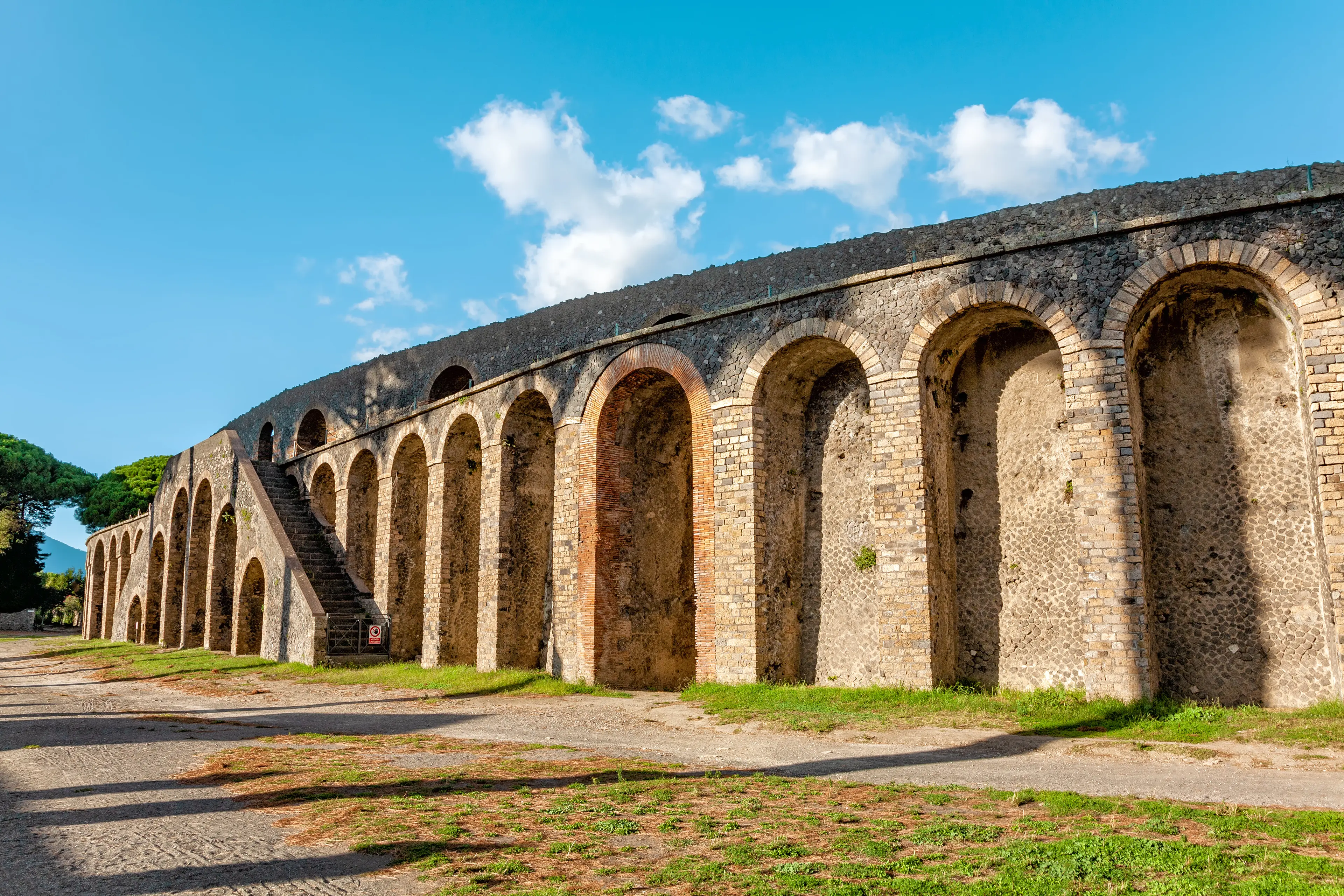
5Pompeii's amphitheater
The oldest surviving Roman amphitheater, it was used for gladiatorial contests, spectacles with wild beasts and possibly for dramas depicting episodes from classical mythology.
Local Food and Drinks (12)

Pizza Napoletana
Originating from nearby Naples, this is a must-try dish in Pompeii. It's a thin crust pizza topped with tomatoes, mozzarella, basil, and olive oil.

Spaghetti alle Vongole
A popular pasta dish in Pompeii, made with clams, garlic, olive oil, and parsley.

Baba al Rum
A small yeast cake saturated in rum, and sometimes filled with whipped cream or pastry cream. It's a popular dessert in the Campania region.

Bufala Mozzarella
A type of mozzarella cheese made from the milk of Italian Mediterranean buffalo. It's a local delicacy in the Campania region.

Neapolitan Coffee
A traditional coffee preparation method in Naples and Pompeii. It's made with a flip coffee pot, which allows the coffee to be infused more slowly, resulting in a stronger flavor.

Taralli
A type of Italian snack food, common all over the southern half of the Italian Peninsula. It's a loop-shaped bread, similar to a bagel, often flavored with black pepper, garlic, fennel seeds, or wine.

Caprese Salad
A simple Italian salad, made of sliced fresh mozzarella, tomatoes, and sweet basil, seasoned with salt, and olive oil. It represents the colors of the Italian flag.

Pastiera Napoletana
A type of Neapolitan tart made with cooked wheat, eggs, ricotta cheese, and flavored with orange flower water. It's a traditional Easter cake in Naples and Pompeii.

Limoncello
A sweet Italian lemon liqueur mainly produced in Southern Italy, especially in the region around the Gulf of Naples. It's traditionally served chilled as an after-dinner digestivo.

Struffoli
A Neapolitan dish made of deep fried balls of dough about the size of marbles. Crunchy on the outside and light inside, struffoli are mixed with honey and other sweet ingredients.

Risotto alla Pescatora
A seafood risotto dish, popular in coastal areas like Pompeii. It's typically made with a variety of seafood, including clams, mussels, prawns, and squid.

Gragnano Wine
A type of red and white wine produced in the area around the town of Gragnano, near Pompeii. It's often served chilled and is known for its effervescence.
Best time to visit
The best time to visit Pompeii, Italy is typically during the spring (April to June) and fall (September and October). During these months, the weather is generally pleasant and the crowds are less dense compared to the peak summer season. The temperatures are comfortable for exploring the archaeological site, and you can enjoy the beautiful scenery of the Amalfi Coast nearby. However, it's always a good idea to check the weather forecast before your trip as conditions can vary.
How to get around
Train
The Circumvesuviana train is a regional network of lines running out of Naples to the south of the city. One of these lines goes to Pompeii. The train station is just outside the entrance to the Pompeii site.
Bus
The SITA bus company runs services from Naples to Pompeii. The bus stop is a short walk from the entrance to the Pompeii site.
Car
If you prefer to drive, Pompeii is easily accessible by car from Naples and other nearby cities. There is a large paid parking area near the entrance to the Pompeii site.
Ridesharing
Ridesharing services like Uber are available in the Naples area and can be used to get to Pompeii. However, availability can be limited, especially during peak tourist season.
Guided Tour
Many companies offer guided tours to Pompeii from Naples and other nearby cities. These tours often include transportation, entrance fees, and a guided tour of the site.
Walk
Once you are at the Pompeii site, the best way to get around is on foot. The ruins are spread out over a large area, but there are many well-marked paths and signs to guide you.
Bicycle
Although bicycles are not allowed inside the archaeological site, they can be a good option for getting around the modern town of Pompeii or exploring the surrounding area.
Scooter
Renting a scooter can be a fun and convenient way to get around the modern town of Pompeii and the surrounding area. However, please note that scooters are not allowed inside the archaeological site.
Important information
Currency€ EUR
Time zoneUTC+1
Driving sideRight
Emergency phoneAmbulance: 112, 118; Fire: 112, 115; Police: 112, 113;
Drinking waterYes, but some opt for bottled water
Power sockets
Voltage230 V
Things to know about Pompeii, Italy as a first time visitor
1
Pompeii is located in the Campania region of Italy, near Naples.
2
The city is most famous for the eruption of Mount Vesuvius in 79 AD, which buried the city in ash and pumice.
3
The best time to visit Pompeii is during the spring (April to June) or fall (September to October) when the weather is mild. The average temperature during these months ranges from 50-75°F (10-24°C).
4
Pompeii can get very crowded, especially during the summer months. It's best to arrive early in the morning to avoid the crowds.
5
Wear comfortable shoes as you will be walking on uneven cobblestone streets.
6
There are no shade structures in Pompeii, so bring a hat, sunscreen, and plenty of water to stay hydrated.
7
Pompeii is a UNESCO World Heritage site, and it's important to respect the rules and regulations to preserve the site for future generations.
8
There are no restaurants or cafes within the archaeological site, so it's a good idea to bring snacks or a packed lunch.
9
Pompeii is a large site and can take a full day to explore. Plan your visit accordingly.
10
There are several entrances to the site, but the main entrance is at Porta Marina.
11
There are public restrooms available at the entrances and throughout the site.
12
Pompeii is wheelchair accessible, but some areas may be difficult to navigate due to the uneven terrain.
13
There are lockers available at the entrance for storing large bags and backpacks.
14
Guided tours are available and can provide valuable insight into the history and culture of Pompeii.
15
The site is open every day except for January 1, May 1, and December 25.
16
The nearest airport to Pompeii is Naples International Airport, which is about 16 miles (26 kilometers) away.
17
There are several hotels and guesthouses in Pompeii and the surrounding area if you wish to stay overnight.
18
The local currency is the Euro (€). Credit cards are widely accepted, but it's always a good idea to carry some cash.
19
Italian is the official language, but English is widely spoken in tourist areas.
20
Pompeii can be reached by train from Naples or Sorrento. The journey takes about 30-40 minutes.
Basic Italian to know as a first time visitor
English phrase | Native phrase | Pronunciation | When to use it |
|---|---|---|---|
Hello | Ciao | chow | Greeting someone |
Goodbye | Arrivederci | ah-ree-veh-der-chee | Leaving someone |
Please | Per favore | pehr fah-voh-reh | Making a request |
Thank you | Grazie | grah-tsee-eh | Showing appreciation |
Yes | Sì | see | Agreeing or confirming |
No | No | no | Disagreeing or denying |
Excuse me | Mi scusi | mee skoo-zee | Getting attention or apologizing |
I don't understand | Non capisco | non kah-pee-skoh | When you don't understand something |
Do you speak English? | Parli inglese? | par-lee in-gleh-zeh | When you need someone to speak English |
I need help | Ho bisogno di aiuto | oh bee-zoh-nyoh dee ah-yoo-toh | When you need assistance |
Where is the bathroom? | Dove è il bagno? | doh-veh eh eel bahn-yoh | When you need to find the restroom |
How much does it cost? | Quanto costa? | kwahn-toh koh-stah | When you want to know the price of something |
I would like... | Vorrei... | vor-ray | When you want to order something |
Water | Acqua | ah-kwah | When you want to order water |
Food | Cibo | chee-boh | When you want to order food |
Beer | Birra | beer-rah | When you want to order beer |
Wine | Vino | vee-noh | When you want to order wine |
Help! | Aiuto! | ah-yoo-toh | When you are in danger or need urgent help |
Call the police! | Chiamate la polizia! | kee-ah-mah-teh lah poh-lee-tzee-ah | When you need to call the police |
Good night | Buonanotte | bwoh-nah-noh-teh | When you are saying goodnight |
Packing List
Clothing
Comfortable walking shoes
Lightweight clothing
Sunglasses
Hat
Rain jacket or umbrella
Toiletries
Sunscreen
Hand sanitizer
Travel-size toiletries (shampoo, conditioner, body wash)
Personal hygiene items (toothbrush, toothpaste, deodorant)
Travel documents and essentials
Passport
Driver's license or ID card
Credit and debit cards
Cash (Euros)
Health insurance card
Hotel reservation confirmation
Tour tickets or confirmation
Electronics and gadgets
Smartphone
Charger for smartphone
Camera
Charger for camera
Power bank
Headphones
Miscellaneous items
Travel guidebook for Pompeii
Map of Pompeii
Reusable water bottle
Snacks
Backpack or daypack
Travel pillow
First aid kit
Weather Conditions
When planning a trip to Pompeii, Italy, it's essential to consider the weather to ensure a comfortable and enjoyable visit. Pompeii experiences a Mediterranean climate, with hot, dry summers and mild, wet winters. During the summer months, from June to August, temperatures can reach up to 86°F (30°C), so it's advisable to bring light, breathable clothing, sunscreen, and a hat to protect yourself from the sun. Remember to stay hydrated, especially if you're planning to explore the archaeological site, which can get quite hot and has limited shade. The winter months, from December to February, are much cooler with temperatures ranging from 39°F to 59°F (4°C to 15°C). If you're visiting during this time, pack warm clothing, including a jacket or coat. Although it's less crowded during winter, keep in mind that rainfall is more common, so an umbrella or raincoat might come in handy. Spring and autumn offer more moderate temperatures, typically between 59°F and 75°F (15°C and 24°C). These seasons can be an ideal time to visit as the weather is pleasant and the tourist crowds are smaller. However, occasional rain showers can occur, so it's wise to pack a light rain jacket or umbrella. Regardless of when you visit, remember that the weather can change quickly, so it's always a good idea to check the local forecast before your trip. Also, consider that the Pompeii ruins are an outdoor site with little shade or shelter, so dress appropriately for the weather and wear comfortable shoes for walking.
| Month | Hi / Lo (°C) | Weather Overview |
|---|---|---|
January | 13° / 3° | January is the coldest month in Pompeii, Italy. It's a great time to visit if you prefer cooler temperatures and fewer tourists. |
February | 14° / 3° | February is still quite chilly, but the days start to get a bit longer. It's a good time to visit if you want to avoid the crowds. |
March | 18° / 6° | March sees the start of spring in Pompeii. The weather is mild and the flowers start to bloom, making it a beautiful time to visit. |
April | 21° / 9° | April is a pleasant month with moderate temperatures. It's a great time to visit Pompeii as the weather is comfortable for sightseeing. |
May | 25° / 13° | May is a warm month, perfect for outdoor activities. The city is not too crowded, making it a good time to explore Pompeii. |
June | 31° / 17° | June marks the start of summer in Pompeii. The weather is hot, but not unbearable, making it a popular time for tourists. |
July | 34° / 20° | July is the hottest month in Pompeii. It's a great time to visit if you enjoy hot weather, but be prepared for large crowds. |
August | 34° / 20° | August is equally hot as July. The city is crowded with tourists, but the weather is perfect for visiting the beach. |
September | 29° / 17° | September is a pleasant month with moderate temperatures. The crowds start to thin out, making it a great time to visit. |
October | 23° / 13° | October sees the start of autumn in Pompeii. The weather is mild and the leaves start to change color, making it a beautiful time to visit. |
November | 18° / 8° | November is a cool month, perfect for those who prefer milder temperatures. The city is less crowded, making it a good time to explore Pompeii. |
December | 14° / 4° | December is a chilly month in Pompeii. It's a great time to visit if you prefer cooler temperatures and want to experience the city in a festive mood. |
Did you know?
Places near by Pompeii, Italy

Naples
Known for its rich history, art, culture, architecture, music, and gastronomy

Amalfi Coast
Famous for its rugged coastline featuring several small towns like Positano, Amalfi, and Ravello

Capri
An island known for its rugged landscape, upscale hotels and shopping, from designer fashions to limoncello and handmade leather sandals

Paestum
Known for its ancient Greek temples, museums, and buffalo mozzarella

Rome
The capital of Italy, known for its rich history, architecture, and culture

Sorrento
A coastal town in southwestern Italy, facing the Bay of Naples on the Sorrentine Peninsula

Ischia
A volcanic island in the Tyrrhenian Sea, known for its mineral-rich thermal waters

Salerno
A city located on the Gulf of Salerno on the Tyrrhenian Sea, it is the main town close to the Amalfi Coast

Caserta
Known for the Palace of Caserta, a former royal residence with park, fountains and a waterfall

Mount Vesuvius
A somma-stratovolcano located on the Gulf of Naples in Campania, it is one of several volcanoes which form the Campanian volcanic arc